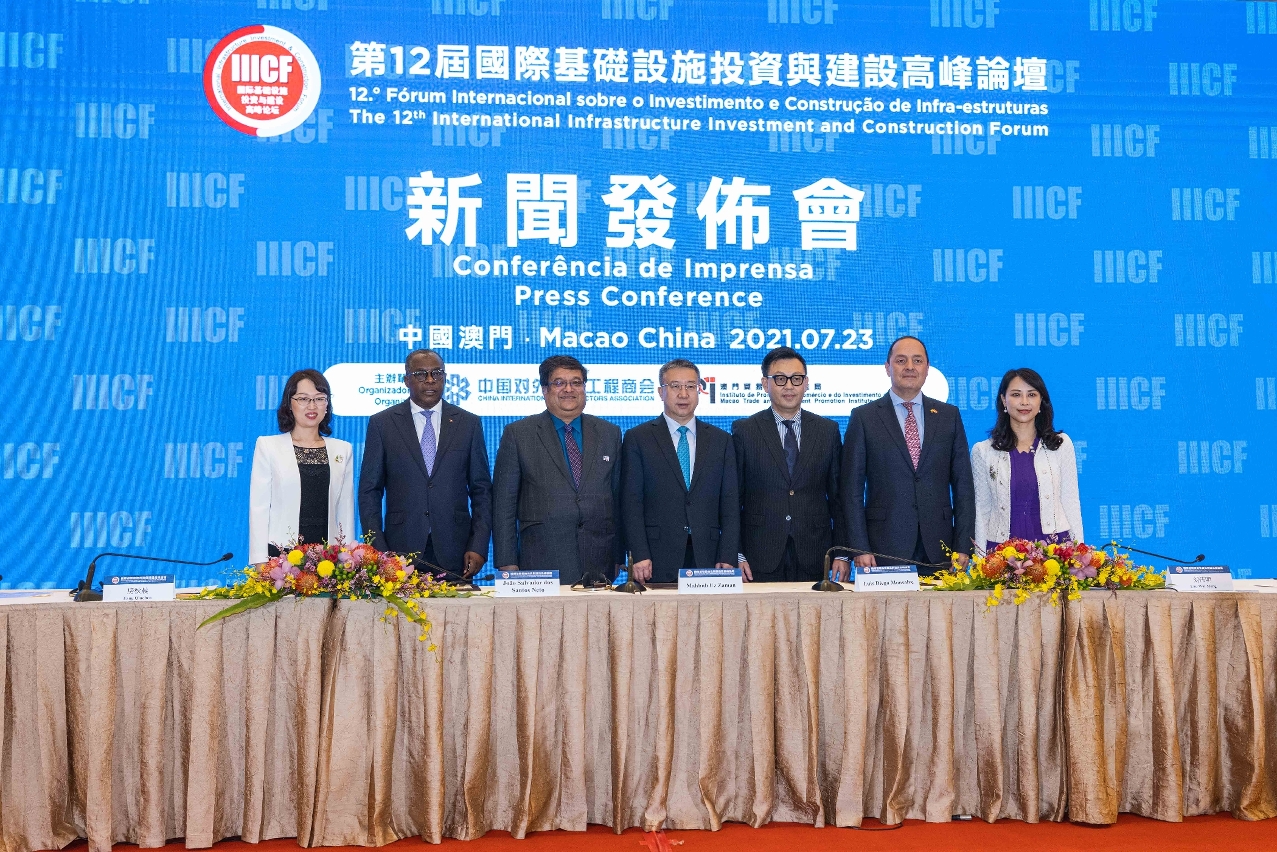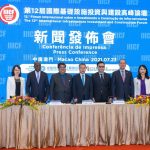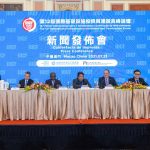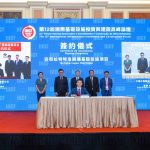 The 12th International Infrastructure Investment and Construction Forum concludes today (23 July)
The 12th International Infrastructure Investment and Construction Forum concludes today (23 July)
The 12th International Infrastructure Investment and Construction Forum (12th IIICF), collaboratively organised by the China International Contractors Association and the Macao Trade and Investment Promotion Institute (IPIM), concluded today (23 July). In the protocol signing ceremony held on the same day, 11 collaboration agreements were signed, covering hydropower, wind power, petrochemistry and municipal engineering in Africa, Latin America, the South Pacific and Europe (Germany and Bosnia and Herzegovina).
A total of 5 parallel forums and 26 business activities were staged during the two-day forum, attended by over 1,300 prominent figures in political, business and academic circles from 71 countries and regions, including diplomatic envoys stationed in China from 42 countries. There were altogether 203 business meetings taking place during this period, an increase of 10% compared to the previous edition of IIICF. 53% of the guests engage in equipment manufacturing, finance and insurance, design consultancy, building materials, engineering services and other related industrial chains, helping to propel synergistic industrial development.
Chairman of the China International Contractors Association Fang Qiuchen concluded that the 12th IIICF brought together industry elites to discuss new trends, opportunities, and challenges in the area of international infrastructure co-operation in the post-pandemic era. Common ground was reached on the issue of driving high-quality and sustainable development of international infrastructure co-operation. First of all, international infrastructure co-operation faces new opportunities in the post-pandemic era. Second, it is of paramount importance to promote green development and innovation-oriented infrastructure construction. Third, the financing bottleneck can only be broken by fostering financial innovation and industrial-financial integration. Fourth, it is recommended to advance the collaborative and innovative development of overseas design consultancy and contracted projects. Fifth, scientific and technological innovation empowers new development of international infrastructure co-operation. Chairman Fang also believed that the 12th IIICF has reached the expectation of boosting the industry’s confidence, building consensus among the industry, and achieving win-win co-operation.
President of the Macao Trade and Investment Promotion Institute Lau Wai Meng summarised the effects of the 12th IIICF from three aspects. Firstly, it has further consolidated Macao’s image as a healthy and safe MICE city suitable for tourism and business, and once again demonstrated Macao’s capacity to hold MICE activities online and offline. Secondly, the 12th IIICF has underlined the role of Macao elements in China’s industrial-financial co-operation with overseas regions, and leveraged Macao’s functionsas a platform at the intersection point of the country’s “dual circulation” development pattern. Through the Networking Reception of China’s Mainland-Macao Belt and Road Business and Professional Services Council (BRBPSC), it has intensified the synergistic co-operation between the construction sectors of Mainland China and Macao, and paved the way for their future internationalisation. Thirdly, the 12th IIICF has enabled Macao-based companies to keep abreast of the international situation and seize new opportunities for infrastructure construction. During the Forum, issues relating to green infrastructure development, financial innovation, industrial chain co-operation in infrastructure, zero-coupon bonds and infrastructure financing were discussed, helping Macao’s construction sector understand the latest market trends and seize business opportunities.




